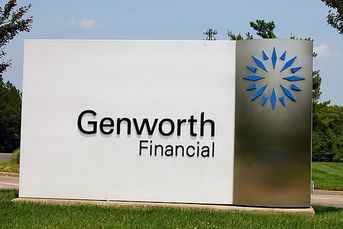Oil price won’t grease the skids for higher rates
The rising price of oil may be instilling inflation fears in the market, but it isn’t likely to…
The rising price of oil may be instilling inflation fears in the market, but it isn’t likely to change the views of Ben S. Bernanke and the Federal Reserve Board on where the economy is headed.
If anything, the Fed will be more concerned about the psychological effect that $4-plus prices for a gallon of gas may have on consumer confidence, rather than whether it triggers a round of inflation. For the time being, the 8.3% unemployment rate is — and should be — the central bank’s greater concern, said Lawrence Weinman, a Los Angeles-based financial adviser who manages $120 million in assets.
“If the economy gets going, inflation will rise a little, but there’s a long way to go before the labor market and the housing market get back into shape,” he said. “It could be a disaster to cut fiscal spending and tighten monetary policy now. It would hurt the still-weak economy.”
Beth Ann Bovino, deputy chief economist for Standard & Poor’s, also thinks that oil prices, which have risen 39% from a low of $76 in early October, will have little effect on Fed policies.
“Headline inflation shot up last year, too, and it came back down. If monetary policy moved on oil prices, we’d be all over the place,” she said.
Ms. Bovino expects the Fed to continue to look at labor inflation and rents for signals that it is time to alter the strategy of keeping short-term interest rates near zero. And on those fronts, there is little to suggest that broader inflation is becoming a problem.
Ms. Bovino doubts that a recent revision of Labor Department statistics showing labor expenses rising 2% last year (an earlier estimate put the figure at 1.2%) indicates significant wage pressure. The number is backed out from the GDP report and includes benefit expenses, estimated hours worked — including by self-employed individuals — and could also reflect a reduction in business spending on plants and equipment that would have otherwise boosted productivity.
REAL EARNINGS
The more important measure for the labor market is real average hourly earnings, which fell by 1% in January from a year earlier, and have been flat to negative for most of the last year.
“We’re still above 8% unemployment, which means workers have very little bargaining power,” said Thomas Holzheu, head of economic research and consulting for North America at the Swiss Re Group.
The Labor Department employment report last Friday showed that the economy added 227,000 jobs last month and the nation’s unemployment rate held steady at 8.3%. Economists don’t expect that pace of job creation to result in significant wage inflation anytime soon.
Although housing markets are stabilizing in some parts of the country, the latest Fiserv Case-Shiller Home Prices indexes data for January showed that prices were still falling in most parts of the United States.
“Between the housing crisis, the Europe crisis and the fiscal drag, I think [Mr. Bernanke] is less worried about the risk of inflation than he is about the economy’s stalling,” Mr. Holzheu said.
Consumers aren’t anticipating any major move in prices either, at least based on the latest results of the University of Michigan Consumer Sentiment Survey of 500 households. The mid-February survey showed consumers’ expecting inflation of 3.3% over the next 12 months (in the February 2011 survey, the inflation prediction was 4.6%).
The five-year inflation expectation was just 2.9% — just about the same as Mr. Bernanke’s target for long-term inflation.
Learn more about reprints and licensing for this article.




